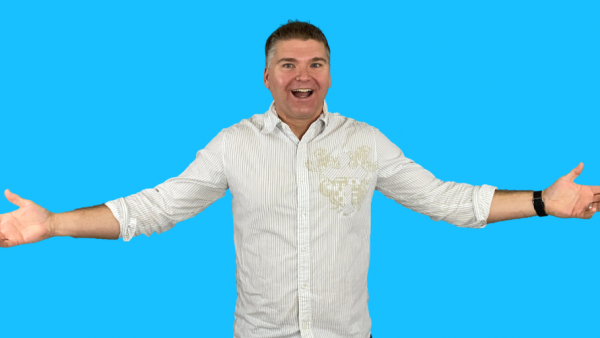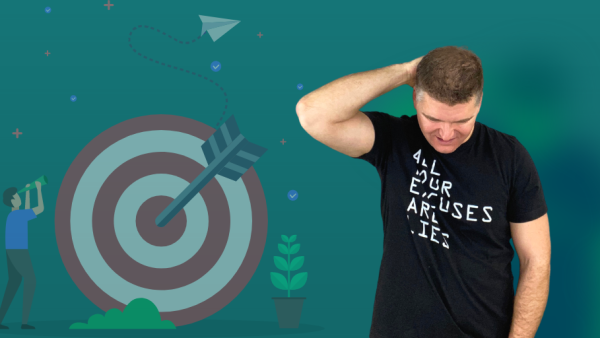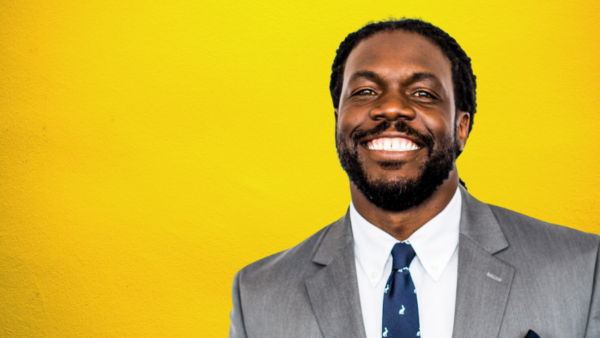When I was twenty-two years old, I ran for the local school board.
No one my age had ever made it through a primary in North Carolina, they told me. There are too many better-known candidates in the field, they consistently reminded me. The statistics show that young people just don’t do well in elections, they shared.
I’ve always been a bit stubborn, so I didn’t listen. And I made it through the primary.

One thing made all the difference:
Belief.
I believed that I could make it through the primary. And my belief showed. We rallied young people around the county to support me. We had more volunteers, more small donations, and more poll workers. We overcame all of the obstacles and made it through the primary election.
Granted, I lost the general election, but it was much closer than anyone expected. All because of my belief.
The more you believe
The more you believe in your own ability, the more likely you are to succeed.
That may not be the most revolutionary statement of the 21st Century, but did you know that it is completely backed by science?
Numerous studies over the past two decades show that belief is the critical catalyst to success. One way or the other, you create self-fulfilling prophecies, positive or negative.
It even applies to how you see yourself in the context of a group.
Stereotyping yourself
Have you ever stereotyped yourself based on a particular group to which you belong?
I’m a man and men always ____.
I’m a jock and we’re just ____.
I’m an artist, so I’m no good at ____.
I’m just a bean counter, don’t ask me to ____.
One study at Harvard shows just how much of an impact this kind of thinking can have on your chances of success.
Margaret Shih and her colleagues gave a group of Asian women similar math tests on two separate occasions. The first time they focused on the gender of the test-takers. They told them that women are traditionally worse at math than men. In other words, the women were primed for failure.
How did one group of women improve their math scores just by changing their beliefs?
The second time around, they focused on the fact that they are Asian and reminded them that Asians are thought to be superior at math. They were primed for success.
Guess which time they performed better?
The second time, of course!
Nothing else had changed. Their math skills had not changed. They had not attended a Calculus refresher course. Their IQ remained the same. The only thing that changed was their belief.
When they took the second test, they believed in their group’s ability. They identified themselves as a member of that group. Therefore, they believed in their own ability. Remember, the more you believe in your own ability, the more likely you are to succeed.
The Obama Effect
In a study with similar findings, The New York Times reported that shortly after the 2008 election of Barack Obama, African-Americans performed better on a standardized test than before the election. (Study Sees an Obama Effect as Lifting Black Test-Takers)
In fact, they performed so much better that they virtually eliminated the black-white gap.
Prior studies had shown that simply answering the race question on a standardized test form lowered the performance of black students. When students were reminded of the negative stereotypes of their race, even subtly, they performed worse.
If you read the article, you will note that some believe the “Obama Effect” was short lived and that may be so. But it shows that simply identifying with a group’s stereotypes, positive or negative, can prime us for success or predict our failure.
What are you choosing to believe today?
Ask yourself, “what am I choosing to believe about my abilities today?”
Are you choosing to believe the lies? Many times what you choose to believe is simply not true. You believe the lies that your parents told you or a teacher told you or manipulative person on television told you. You believe the lies that you tell yourself and eventually they sound like truth.
It took me twenty-one long and often wasted years to recognize a lie that a teacher told me in eighth grade! That lie crippled me for more than two decades. Now I know the freedom that comes from choosing to ignore the lies.
What would happen if you stopped identifying with those lies? What could you accomplish?
When your beliefs are actually true
What could you accomplish if you stopped believing the lies others have told you about you?
Sometimes, your thoughts are true. Maybe you aren’t the most athletic person or that great of a cook. You probably are average or not that good at a lot of things. Those things may be true, but they don’t have to hold you back.
But what do you choose to focus on?
When I was running for the school board, I chose to focus on the positive facts of my candidacy:
- I would get a huge percentage of the youth vote.
- I could make the case that I understood modern schools better.
- I had more energy to go door-to-door and put up signs.
If you aren’t athletic and you’re on a team, focus on your leadership abilities and skill at inspiring others.
If you aren’t a good cook, remind yourself that you are a great host and love entertaining. People aren’t coming over as much for the food as the company. So order some Chinese and pizza and have a blast.
If you are an entrepreneur and truly have a hard time with math, remind yourself that you have Excel for a reason and get a good CPA.
Key takeaway: Work to your strengths and don’t let your weakness hold you back.
Prime yourself for success and you’ll succeed. Predict your own failure and it will inevitably result.
The more you believe in your own ability, the more likely you are to succeed. Today, choose to believe in your abilities.
What beliefs have you focused on that you need to change in order to succeed?
|
|
Questions?
Text me anytime at (260) 217-4619.
Or…check out some of my free reports to help you get on the right track:
 |
 |
 |
 |
 |
 |
 |
 |
 |








Matt, this is so true, and you can see from someone’s face and their walk/body language whether they are priming themselves for success or whether they have already given up hope, can’t you?
The most wonderful thing of all is to bring hope into someone’s life and watch them expand from the inside out as they realise that yes, they TOO are capable of great things.
In fact, your article has given me the inspiration for a special Armistice Day post on WingsToSuccess.com tomorrow based on a little-known quote attributed to Winston Churchill. Think you’re going to love this one, Matt. Stay tuned!
Look forward to it Rick!
OK – here’s the link: http://www.wingstosuccess.com/are-you-prepared/
Good post. I’m a great writer and artist. But I’ve told myself that writers and artists are not the best marketers. I’ve been lying to myself. I can kick some…
Matt, this is an excellent post. I have studied this effect as well and it is powerful. Our beliefs so often hold us back. That’s one reason I make it a priority to read uplifting books and blogs because it changes my thoughts, my beliefs, and thus my direction.
I agree Skip. I’m more convinced than ever that our minds are like anything else. The more good stuff you fill it up with, the less bad stuff can fit in.